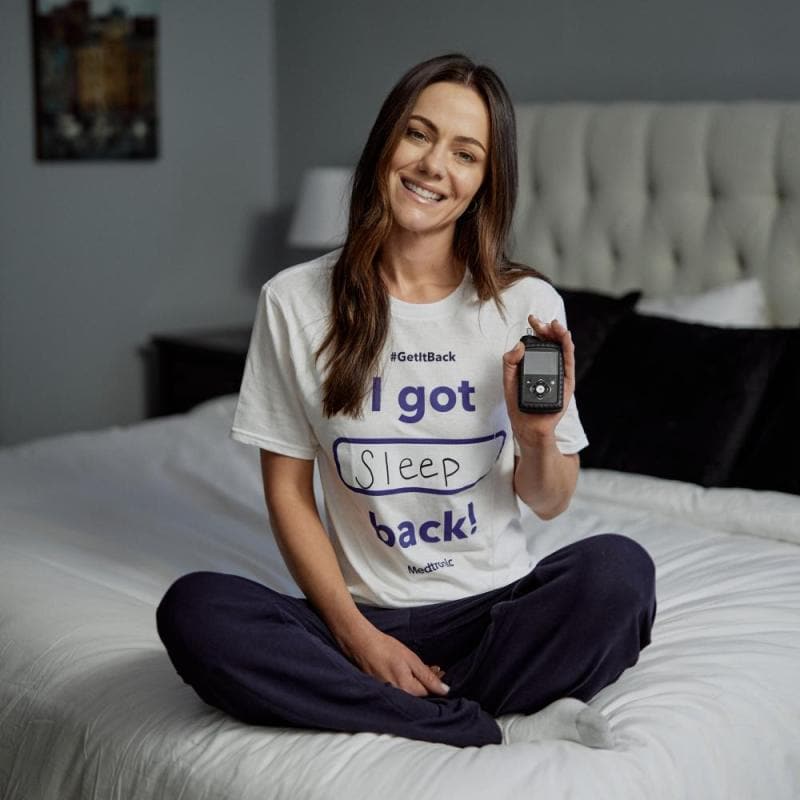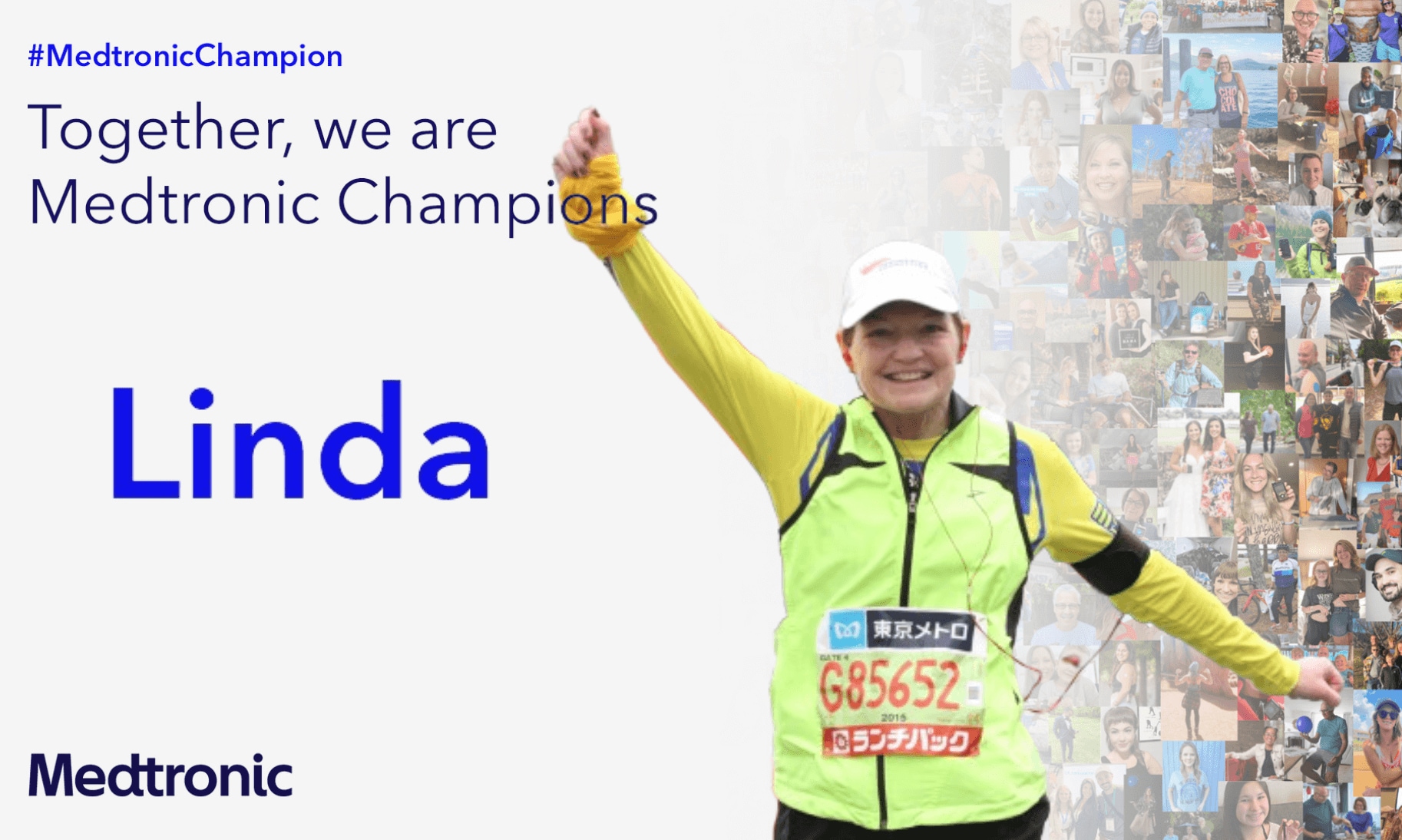Meet #MedtronicChampion Alexandra Park

Thriving in the spotlight with automated insulin delivery: Meet #MiniMedChampion Alexandra Park
Actress, writer, and producer Alexandra Park does it all while living with type 1 diabetes. She started her diabetes journey in denial and was afraid to explore diabetes technology. For the last 11 years, she has been managing her condition with insulin injections – until now.
Alexandra sat down with us to share her story about why she made the transition from multiple daily injections (MDI) to the freedom of automated insulin delivery with the MiniMed™ 780G system.
In denial about my diagnosis
My diabetes diagnosis could not have come at a worse time. It was two months before I was set to leave Australia to move to Los Angeles. My doctors advised me to cancel the move to get used to my condition with my family’s support, but I was determined to pursue my dream of acting and moved to LA as planned. Shortly after, I accepted the role of Princess Eleanor for the TV series The Royals and I was off to London for filming.
I was focused on my exciting new career opportunity and very much in denial about my type 1 diabetes. So much so that I pushed it to the side while I struggled with the very busy schedule of being a lead actress on a TV show in a foreign country. Unfortunately, this was the start of my many scary experiences with hypoglycemia.
It wasn’t until my blood sugar went so low I went unconscious that I finally started accepting my condition. Being diagnosed with diabetes came with a new set of challenges, but it didn’t have to disrupt my goals and aspirations. I realized that I could still live my life how I wanted to, as long as I made an effort to manage my condition properly.
Transitioning to automated insulin delivery
As an actress, you always need to be on your A-game. MDI worked great for me at first, but it was a struggle for me to manage 24/7 and started to take a toll on me, especially while I was on set. I was obsessed with keeping my blood sugars in range, and it was mentally exhausting and isolating at times. I developed a routine before each scene to check my blood sugars, make sure I had glucose on hand, and give myself insulin shots if needed. I had things under control, but I was always so worried that my condition would interfere with the scene or let the crew down.
Part of the reason I stuck with MDI for so long was because I felt like there was a negative stigma around insulin pumps. I was nervous that other people would judge me for wearing a pump or that it would draw unwanted attention to my condition. It just didn’t seem worth it to me.
That all changed when I found out about the MiniMed™ 780G system. I love the features of the system, especially with auto corrections† every five minutes.§ I was blown away by the algorithm and the system’s ability to adjust in real time to help protect me from highs and lows.
For people living with T1D, there’s often a lot of guilt or shame with navigating highs and feeling like you’re not doing enough to keep them in check or that you did something wrong. It’s also stressful thinking about how these prolonged highs have a cumulative impact on my health over time. The long-term complications are scary and I certainly want to be as healthy as I can for as long as possible.
It’s been eye-opening to see how many corrections the system automatically delivers throughout the day to keep me in range — the best I’ve experienced since diagnosis. I now realize that there’s no way I can outperform automated technology that’s programmed to deliver up to 288 corrections per day! With this system, it feels like I have another brain doing a lot of the work for me, so I can focus less on my sugar levels and more on my acting, my family, and all the other things I love.
“It’s eye-opening to see how many corrections the MiniMed™ 780G system automatically delivers throughout the day to keep me in range — the best I’ve experienced since diagnosis. I can stay focused on my creativity and living my best life knowing the system has my back.”
My experience with the MiniMed™ 780G system
Better sleep
On MDI, I was used to being woken up — up to three times a night. And not just me, but my husband, too. I would get alerts in the middle of the night and either try to quickly eat an apple or sleepily give myself insulin.
With the MiniMed™ 780G system, I sleep through the night. I got my sleep back! And when I sleep better, my sugar levels are more stable and I’m less emotional.

Tighter control around mealtimes
I like to keep tight control of my insulin doses, so I love that I can be precise with my insulin. Even though I can be a bit of a perfectionist, I’m only human. On the days when I over- or under-estimate my carb counts or even occasionally forget to bolus before I eat, the Meal Detection™ technology* helps automatically correct † my sugar levels.
Help with highs and lows
I experienced hypoglycemia (low blood sugar) often in the past, which was extremely scary. So sometimes I would overcorrect and send my levels the other way into bouts of hyperglycemia (high blood sugar), which would make me feel tired, dizzy, and sick. I was also really worried about the long-term health impacts of not keeping my highs in check. I used to obsess about checking my CGM, and while it was a great tool to have, it put a lot of the burden on me to make sure I was always dosing correctly. With the MiniMed™ 780G system, my CGM talks to my pump and then does most of the work for me. The system uses SmartGuardTM technology toautomatically help keep me in range so I can let go of a lot of that anxiety about going too low and avoid the negative effects of going too high.
Lessons learned
There is an enormous lack of knowledge and awareness around diabetes – from the differences between type 1 and type 2 diabetes, to what living with this condition is really like. I know I had the wrong idea about it at first. I am happy to be a part of the Medtronic community to help encourage a broader understanding and make people living with diabetes feel less alone.
My biggest piece of advice for people living with diabetes is to find the therapy that works best for you. MDI worked well for me for a long time, but the MiniMed™ 780G system has truly changed my life. It helps me balance my highs and lows, which makes a big difference in my mood, energy levels, and overall health. It works hard in the background to keep me in range, so I can focus on the things that are most important to me.
Living with diabetes isn’t easy, but advancements in technology, increased awareness, and a strong community of support make it much more manageable.
“I am a MiniMed Champion because I have never let my diabetes diagnosis stop me from living my life on my terms.“
Alexandra Park is a paid spokesperson. Opinions expressed by a spokesperson are based on the spokesperson’s actual experience and are not necessarily the opinions of Medtronic. Individual experiences vary, and the experience other individuals have with the device could be different. Please talk to your doctor about your condition and the risks and benefits of Medtronic devices.
Reference
*Taking a bolus 15 – 20 min before a meal helps to keep blood sugar levels under control after eating.
† Refers to auto correct, which provides bolus assistance. Can deliver all auto correction doses automatically without user interaction, feature can be turned on and off.
§ Refers to SmartGuard™ feature. Individual results may vary.
Important safety information: MiniMed™ 780G system with SmartGuard™ technology with Guardian™ 4 sensor
The MiniMed™ 780G system is intended for continuous delivery of basal insulin at selectable rates, and the administration of insulin boluses at selectable amounts for the management of type 1 diabetes mellitus in persons seven years of age and older requiring insulin as well as for the continuous monitoring and trending of glucose levels in the fluid under the skin. The MiniMed™ 780G system includes SmartGuard™ technology, which can be programmed to automatically adjust insulin delivery based on the continuous glucose monitoring (CGM) sensor glucose values and can suspend delivery of insulin when the sensor glucose (SG) value falls below or is predicted to fall below predefined threshold values.
The Medtronic MiniMed™ 780G system consists of the following devices: MiniMed™ 780G insulin pump, the Guardian™ 4 transmitter, the Guardian™ 4 sensor, One-press serter, the Accu-Chek™ Guide Link blood glucose meter, and the Accu-Chek™ Guide test strips. The system requires a prescription from a healthcare professional.
The Guardian™ 4 sensor is intended for use with the MiniMed™ 780G system and the Guardian 4 transmitter to monitor glucose levels for the management of diabetes. The sensor is intended for single use and requires a prescription. The Guardian™ 4 sensor is indicated for up to seven days of continuous use.
The Guardian™ 4 sensor is not intended to be used directly to make therapy adjustments while the MiniMed™ 780G is operating in manual mode. All therapy adjustments in manual mode should be based on measurements obtained using a blood glucose meter and not on values provided by the Guardian™ 4 sensor. The Guardian™ 4 sensor has been studied and is approved for use in patients ages 7 years and older and in the arm insertion site only. Do not use the Guardian™ 4 sensor in the abdomen or other body sites including the buttocks, due to unknown or different performance that could result in hypoglycemia or hyperglycemia.
WARNING: Do not use the SmartGuard™ feature for people who require less than 8 units or more than 250 units of total daily insulin per day. A total daily dose of at least 8 units, but no more than 250 units, is required to operate in the SmartGuard™ feature. |



